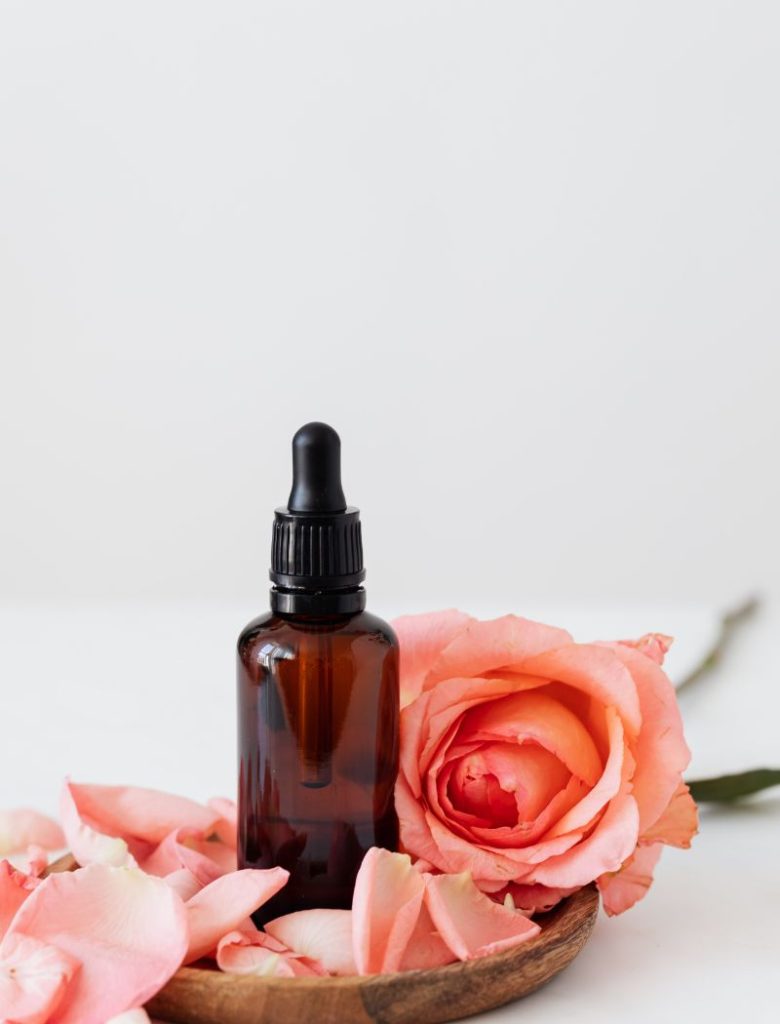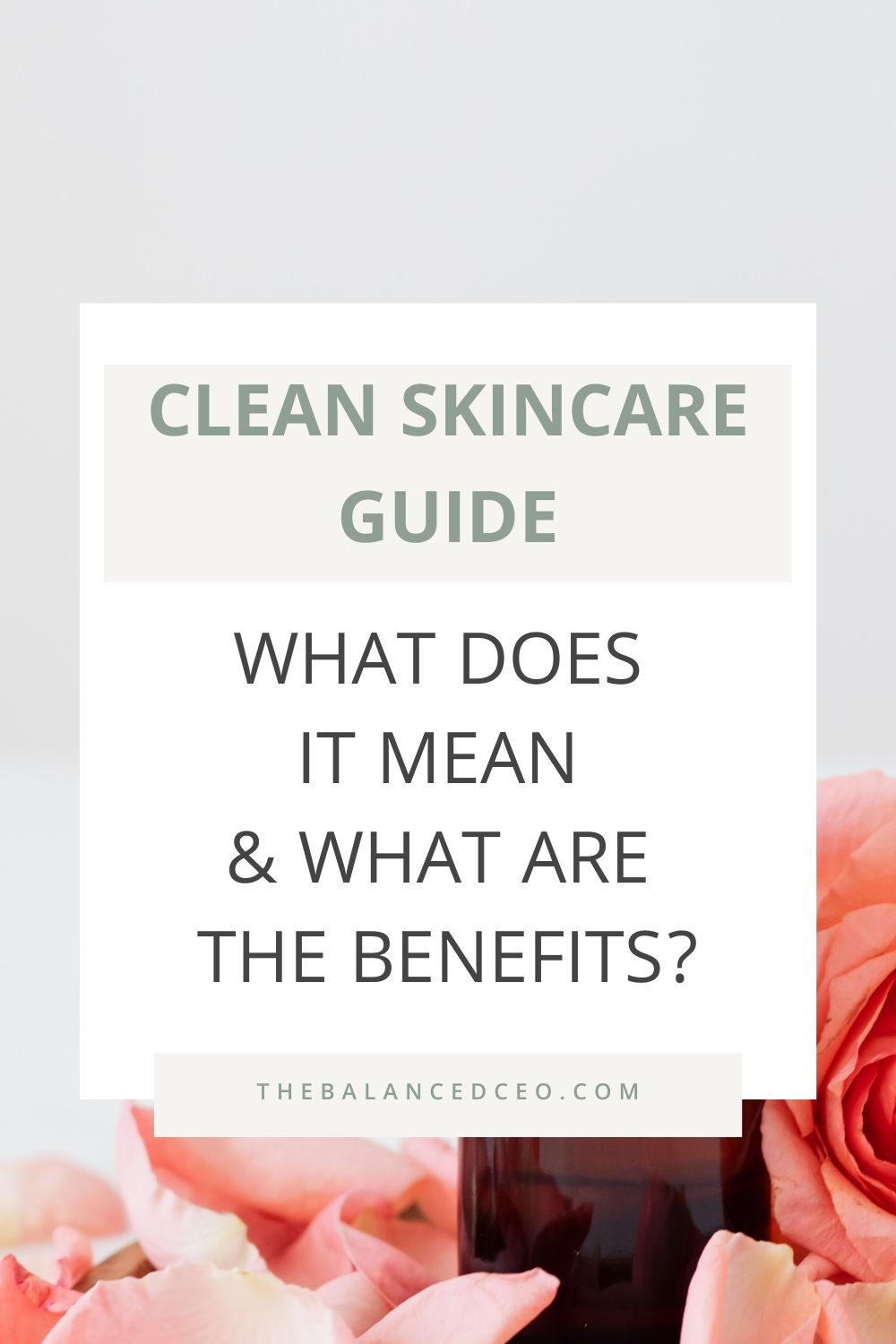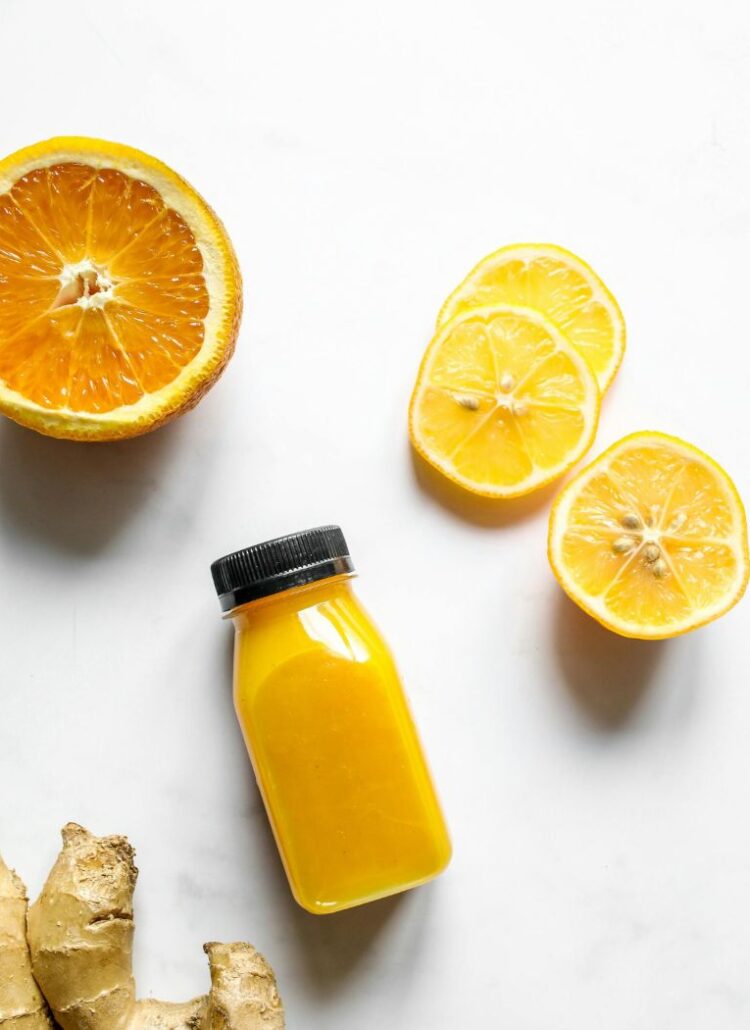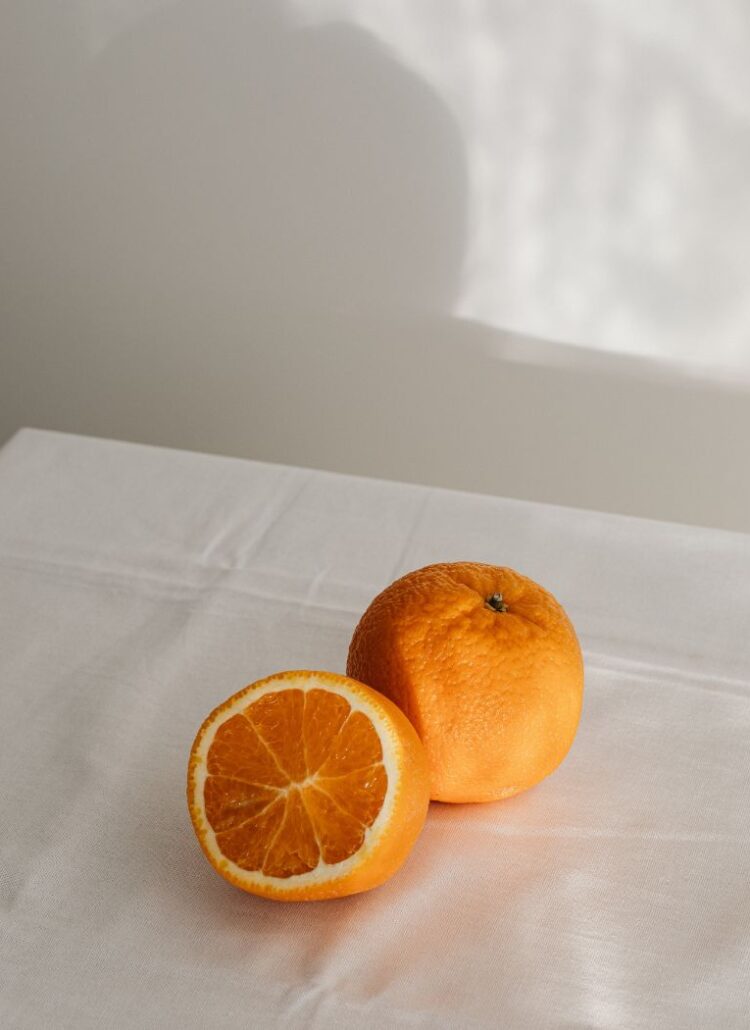This post may contain affiliate links, which means I’ll receive a commission if you purchase through my links, at no extra cost to you. Please read full disclosure for more information.

Clean eating, beauty, and lifestyles are everywhere online. You’re probably thinking of getting on the clean train, too. People are becoming more conscious of how their choices affect their bodies and the world around them.
It’s no surprise the clean movement has reached skincare. People can’t get enough of the newest serums, ampoules, and SPFs. As they curate their 14-step routines, it’s natural for them to stop and ask, “What am I putting on my skin?”
Brands are quick to respond to consumers’ cleaner preferences. They continuously add beneficial ingredients and remove harmful ones from their products. Even so, there are still questions surrounding the term “clean.” What does it mean?
What Is Clean Skincare?
Clean beauty refers to skincare, makeup, and other beauty products that contain no harmful chemicals. However, there isn’t any regulation explicitly defining what clean beauty is. These products can be natural, organic, non-toxic, green, or any combination of those labels. The definition can vary from brand to brand and person to person.
For instance, many people consider eco-consciousness, animal rights, and human rights as part of being clean. To them, cleanliness is about a product’s impact on the skin and the world. It’s common to see labels like cruelty-free, vegan, and fair trade as part of what makes a product clean.
Decoding Buzzwords
If you’ve been building your skincare routine, you’ve likely seen some buzzwords pop up. Natural, organic, non-toxic, green — It can get confusing fast. What do all these terms mean? Here are some standard skincare labels and their definitions:
- Natural: Brands use the natural label if their ingredients come from natural sources. These ingredients can be anything from plant extracts to essential oils.
- Organic: Organic is a government-regulated label. Brands can use it if they utilize ingredients without pesticides or other artificial elements.
- Green: Green is a broad term that can mean natural, biodegradable, sustainable or any combination of those labels. Green can also extend to the product’s packaging.
- Non-toxic: This label means the product has no toxic ingredients or components that cause bodily harm.
- Cruelty-free: A product is cruelty-free if its manufacturer doesn’t test it on animals.
- Vegan: Vegan skincare products are created without any animals or animal by-products.
- Fair Trade: This means all ingredients in the product were sourced ethically without employing abusive business practices.
What Are the Benefits of Clean Skincare?
A 2021 report found 68% of consumers actively want clean skincare brands. Why are so many people turning to such skincare or beauty?
Clean skincare products:
- Are free of harmful chemicals, carcinogens, toxins, and other elements that can harm your health
- Reduce the possibility of hormonal issues
- Give you priceless peace of mind
- Are the ethical choice, reducing harm to animals, workers, communities, and ecosystems
- Are often biodegradable and contain ingredients that won’t pollute water when you wash them off
- Are less likely to cause irritation, sensitivity, and flare-ups
How to Know if a Skincare Product Is Clean
Right now, any brand can claim their products are clean. Researchers estimate one-third of products are labeled clean in the U.S., even though there is no strict standard of what that label really means. So how do you know you’re buying the right products?
Be Label Conscious
You should search the label carefully for any harmful chemicals when you pick up a product. European governments have banned or regulated more than 1,300 cosmetic ingredients while the U.S. Food and Drug Administration has only banned 11 in total. California was the first state to have a list of 24 banned ingredients, but the rest of the country has a long way to go.
Because of the lack of regulation, you’ll likely find products that can cause several issues on American shelves. Look carefully for the following ingredients next time you pick up a skincare item:
- Parabens: Parabens are standard preservatives in cosmetic products. They can disrupt hormone functions, which could affect fertility.
- Phthalates: Manufacturers use phthalates to stabilize cosmetic products like fragrances, nail polishes, and shampoos. One study shows these chemicals can damage the endocrine system, adversely affecting pregnancy and child development.
- Sulfates: Scientists have debunked the myth that sulfates are carcinogenic. Still, sulfates can be harsh, so steer clear if you have weak, dry, or brittle hair.
- Formaldehyde: A common cosmetic preservative, formaldehyde can cause skin irritation and is a confirmed carcinogen — not good for your health.
- Oxybenzone: Commonly found in broad-spectrum sunscreen, this chemical harms the environment. Key West and Hawaii governments have banned products with oxybenzone because of their harmful effects on corals and other marine life.
- Polyethylene Glycol: Manufacturers add this ingredient to cosmetics as a preservative and humectant. However, it can cause allergic reactions in the skin.
Look for Certifications
To ensure your skincare products are truly clean, check the company’s certifications. These are some of the most common and reputable ones you can keep an eye out for.
- EWG Verified
The Environmental Working Group (EWG) certifies products are free from harmful chemicals. It has an online database where you can search for all their verified products.
- Made Safe
Made Safe verifies items through its Ecosystem Approach. It certifies products based on ingredients, manufacturing, and sourcing methods.
- USDA Certifications
The United States Department of Agriculture regulates the organic label for food and other consumer products. It also has a catalog of products that are biobased or made with ingredients derived from living matter.
- COSMOS EcoCert
COSMOS certifies products that are natural, organic, ethical, sustainable, and GMO-free.
- Leaping Bunny
With one of the most recognizable certification seals, Leaping Bunny certifies cruelty-free products made without animal testing.
- Fair Trade Certification
Fair Trade USA™ certifies products that pass their rigorous fair-trade standards. Brands must fulfill ethical criteria like promoting environmentally-friendly methods and safe working conditions.
- Vegan Certified
Products that have the Certified Vegan Logo are confirmed to be free of animal products and by-products. Certified products are also not tested on animals.
Living a Cleaner Life
Avoiding chemicals and waste is not just a fleeting trend. In fact, more and more people are choosing to live more sustainably. If you love caring for your skin, consider clean skincare products the first step toward a greener life. Your health and your planet will thank you for it.

Cora Gold
Contributor
Cora Gold is the Editor-in-Chief of Revivalist magazine, a publication dedicated to happy, healthy, and mindful living.





Leave a Reply